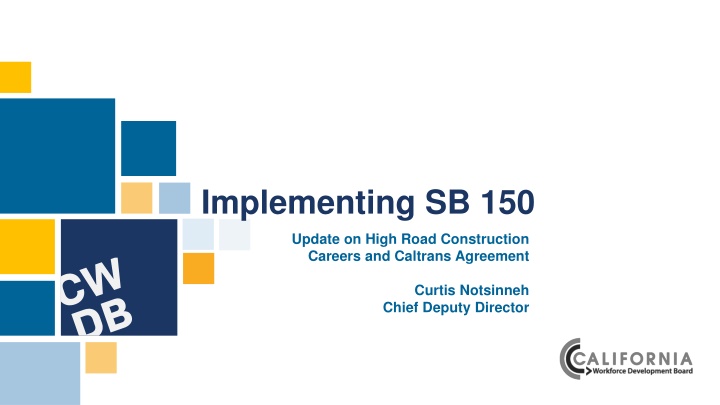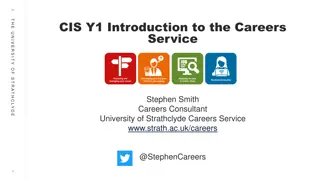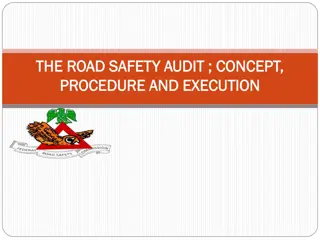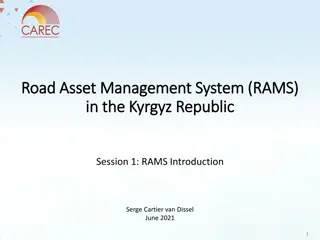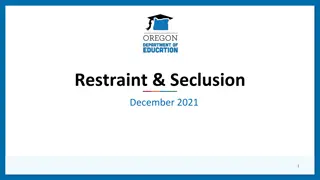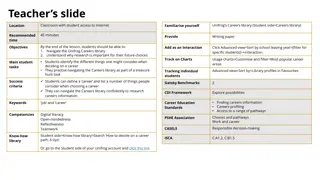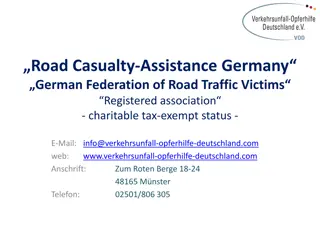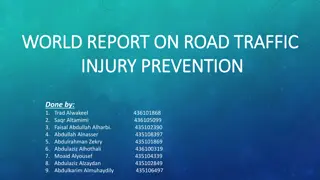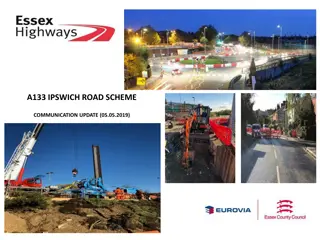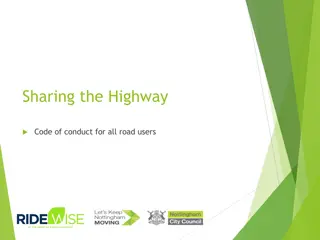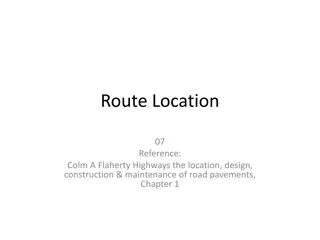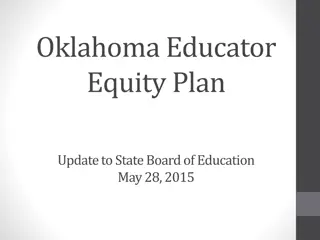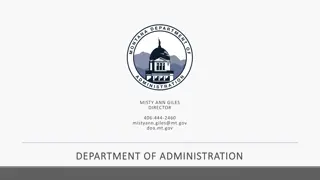High Road Construction Careers and SB 150 Update: Path to Economic Equity
Embracing high road construction careers is vital for economic growth, equity, and sustainability. The focus is on improving job quality, meeting employer needs, and fulfilling community aspirations. These careers emphasize training partnerships that support underrepresented populations and promote access to apprenticeship programs. The intent is to address the demand for skilled workers, enhance equity in training access, and boost economic activity in deserving regions.
Download Presentation

Please find below an Image/Link to download the presentation.
The content on the website is provided AS IS for your information and personal use only. It may not be sold, licensed, or shared on other websites without obtaining consent from the author.If you encounter any issues during the download, it is possible that the publisher has removed the file from their server.
You are allowed to download the files provided on this website for personal or commercial use, subject to the condition that they are used lawfully. All files are the property of their respective owners.
The content on the website is provided AS IS for your information and personal use only. It may not be sold, licensed, or shared on other websites without obtaining consent from the author.
E N D
Presentation Transcript
Implementing SB 150 Update on High Road Construction Careers and Caltrans Agreement Curtis Notsinneh Chief Deputy Director
High Road Construction Careers
What is High Road? High road means a set of economic and workforce development strategies to achieve economic growth, economic equity, shared prosperity and a clean environment. The strategies include, but are not limited to, interventions that: 1) Improve job quality and job access, including for women and people from underrepresented populations. 2) Meet the skill and profitability needs of employers. 3) Meet the economic, social, and environmental needs of the community. CA Unemployment Insurance Code 14005 (r)
High Road Training Partnerships High road training partnership means an initiative or project that models strategies for developing industry-based, worker-focused training partnerships, including labor-management partnerships. High Road Training Partnerships operate via regional, industry- or sector-based training partnerships comprised of employers, workers, and their representatives including organized labor, community-based organizations, education, training, and social services providers, and labor market intermediaries. High Road Training Partnerships demonstrate job quality standards and employment practices that are articulated in the statute. CA Unemployment Insurance Code 14005 (r)
High Road Construction Careers High road construction careers are high road training partnerships that invest in regional training partnerships comprised of local building trades councils, workforce, community, and education interests that connect to state-approved apprenticeship programs, that utilize the standard Multi-Craft Core preapprenticeship training curriculum and provide a range of supportive services and career placement assistance to women and people from underserved and underrepresented populations. CA Unemployment Insurance Code 14005 (s)
Intent of High Road Construction Careers for SB 150 Implementation 1) Meet the demand for qualified construction workers required to complete federal Infrastructure Investment Jobs Act (IIJA) funded transportation projects. 2) Promote equity in access to State-approved joint- apprenticeship programs with a focus on women, workers from disadvantaged communities, veterans, and formerly incarcerated. 3) Put more people to work, more money in the pockets of Californians, and more economic activity in regions and communities that most need it.
BuildingTrades Councils Joint Community Colleges Apprenticeship TrainingCenters Workforce Development Boards Community Based Organizations
Comprehensive wrap around supportive services make a difference Incentives: Payments on the basis for satisfactory attendance and participation in any IEP goals (e.g. Obtaining HS diploma, post secondary education completion, etc). Stipends: Payments strategically provided throughout the duration of training to encourage completion of program (i.e., obtain MC3 certification and placement) Various supportive services necessary to enable an individual to successfully participate in training activities provided by program. These include and are not limited to transportation, acquiring of work clothes and/or tooling, childcare, etc. Supportive services must be deemed necessary and reasonable; and can only be provided to those enrolled into program. Supportive services can be provided even after having completed MC3 training as part of the goals of HRCC is to place into pre-apprenticeship, apprenticeship and/or employment. In order to do this, grantees must be able to continue to support participants throughout their training and placement venture. Even after placement, participants can continue to be provided (limited) supportive services as follow up to ensure retention. Payment of union dues have been and are currently allowed with HRCC funding programs are State funded and we had the flexibility to allow this and falls in line with providing placement and retention services.
Interagency agreement between CWDB and Caltrans The funds will be awarded and managed by the CWDB through the existing HRCC solicitation and grant management. The CWDB will act as a third-party participant on separate contracts for technical assistance and evaluation.
Budget allocation of the $50 million CWDB will receive $50 million over four fiscal years starting in FY 24/25 through FY 27/28. Per the federal requirements, the $50 million will also cover technical assistance and evaluation as well as covering CWDB staff costs.
Thank You For more information on high road strategies and field of practice, please visit: https://cwdb.ca.gov/highroadvision/
